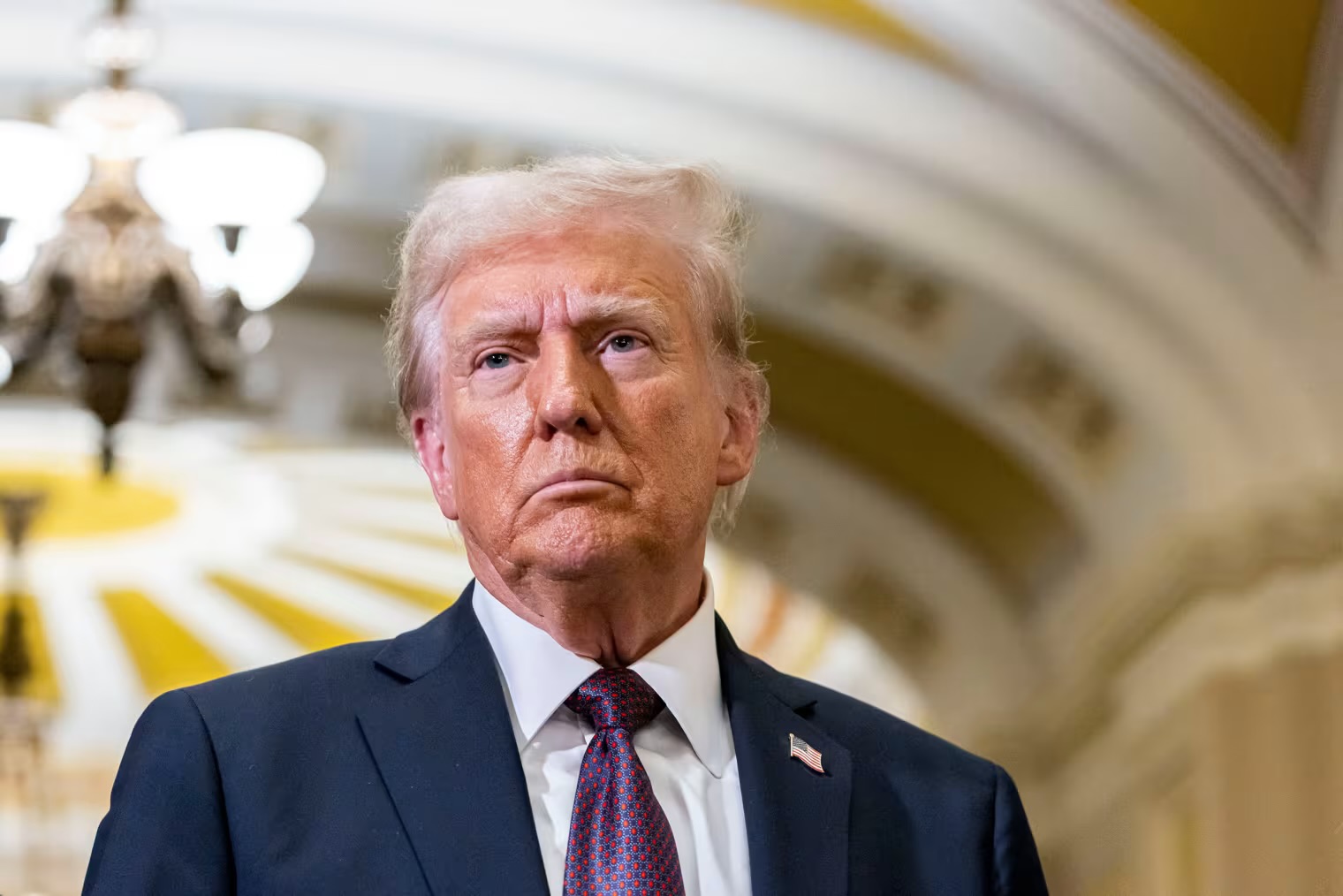Economy
Trump’s Economic Team Set To Push ‘America First’ Policies
Economic team to include billionaires Scott Bessent, Howard Lutnick, oil executive Chris Wright to make tariff threats, deregulation visions come true,

President-elect Donald Trump’s economic team is expected to quickly implement policies in coordination with what he calls his “America First” policies.
Trump put economic policies at the center of his election campaign last year and promised to lower inflation, impose additional tariffs on countries, increasing fossil fuel production and tax cuts for the rich. After his victory in November, Trump tapped his Cabinet members and laid out his economic plans.
Trump said his “favorite word in the dictionary” is “tariff” and displayed a protectionist stance in his upcoming administration, threatening China, Canada, Mexico, the BRICS bloc and the EU with tariffs.
He said a combination of tax cuts, fair trade, deregulation and energy abundance would yield more, better and cheaper production inside the US.
Trump highlighted his climate change denialism as a part of his campaign, as he said he would lift the Biden administration’s ban on oil and gas drilling on most US territorial waters. He also promised to turn the US into “the Bitcoin superpower of the world.”
The president-elect had appointed advisors with various views on free trade and tariffs during his first term but he tapped those with ideas closer to his for his second to implement policies and regulations in line with his vision.
Trump nominated billionaire Scott Bessent, an investor and a hedge fund manager, to head the Treasury Department, which was received well by US markets. He said Bessent would lead “a Golden Age for the US,” supporting his policies to improve competitiveness, eliminate unfair trade imbalances and build an economy prioritizing growth.
US media outlets reported that Bessent advised Trump to follow his “3-3-3” plan, which includes reducing the ratio of budget deficit to gross domestic product (GDP) to 3% by 2028, increasing GDP growth to 3% via deregulation and boosting energy production to an additional 3 million barrels of oil or equivalent on a daily basis.
Bessent told the Wall Street Journal that his priority would be to fulfill Trump’s promises for tax cuts, which includes making Trump’s first-term tax cuts permanent and eliminating taxes on tips, social security benefits and overtime pay.
He said at his confirmation hearing that he would stimulate growth via regulatory policies, cutting taxes and deregulating energy production.
Trump tapped billionaire Howard Lutnick, CEO of the financial services firm Cantor Fitzgerald, for Commerce secretary, as one of the major supporters of crypto assets and the tariffs on foreign goods.
The president-elect nominated Liberty Energy CEO Chris Wright to lead the energy agency, saying he worked on nuclear, solar and geothermal energy fields, as well as oil and gas. Wright, one of Trump’s campaign donors, is also a climate change denier. “Carbon dioxide does indeed absorb infrared radiation, contributing to warming, but calling carbon dioxide ‘pollution’ is like calling out water and oxygen—the other two irreplaceable molecules for life on Earth,” Wright said in a video on LinkedIn last year.
Wright said he would focus on restoring the US energy dominance, and to do so, the country’s energy production need to be increased.
Trump’s nomination for the Trade Representative was attorney Jamieson Lee Greer, who was involved in trade negotiations with China, Canada and Mexico during Trump’s first term. He said Greer would rein in the US trade deficit and defend its manufacturing, agriculture and other export markets.
The president-elect tapped economist Kevin Hassett for the National Economic Council, who supported Trump on corporate tax cuts.
Russell Vought was nominated for the Office of Management and Budget, and he was in Trump’s first term. Following his confirmation, Vought is expected to roll back federal regulations and simplify regulatory processes.
He is also a lead figure in Project 2025 by the far-right think-tank Heritage Foundation. Project 2025 is a political initiative laying out the terms of the transition to a conservative Republican governance and the pillars of such government in a 900-page playbook, which came into the limelight last year.
Vought said at his hearing that he would not push to shut down the government for funding conflicts, as the government experienced the longest shutdown in its history for 35 days during Trump’s first term.
Trump tapped economist Stephen Miran for the chair of the Council of Economic Advisers. Miran served in the Treasury during Trump’s first term.
As a senior advisor, Miran strongly supported Trump’s additional tariff threats.
Kenya Insights allows guest blogging, if you want to be published on Kenya’s most authoritative and accurate blog, have an expose, news TIPS, story angles, human interest stories, drop us an email on [email protected] or via Telegram
-

 Investigations1 week ago
Investigations1 week agoBillions Stolen, Millions Laundered: How Minnesota’s COVID Fraud Exposed Cracks in Somali Remittance Networks
-

 News2 weeks ago
News2 weeks agoUS Moves to Seize Luxury Kenya Properties in Sh39 Billion Covid Fraud Scandal
-

 Investigations1 week ago
Investigations1 week agoJulius Mwale Throws Contractor Under the Bus in Court Amid Mounting Pressure From Indebted Partners
-

 News1 week ago
News1 week agoMAINGA CLINGS TO POWER: Kenya Railways Boss Defies Tenure Expiry Amid Corruption Storm and Court Battles
-

 Business3 days ago
Business3 days agoEastleigh Businessman Accused of Sh296 Million Theft, Money Laundering Scandal
-

 Americas1 week ago
Americas1 week agoUS Govt Audits Cases Of Somali US Citizens For Potential Denaturalization
-

 Business3 days ago
Business3 days agoEXPLOSIVE: BBS Mall Owner Wants Gachagua Reprimanded After Linking Him To Money Laundering, Minnesota Fraud
-

 Business2 days ago
Business2 days agoMost Safaricom Customers Feel They’re Being Conned By Their Billing System
















